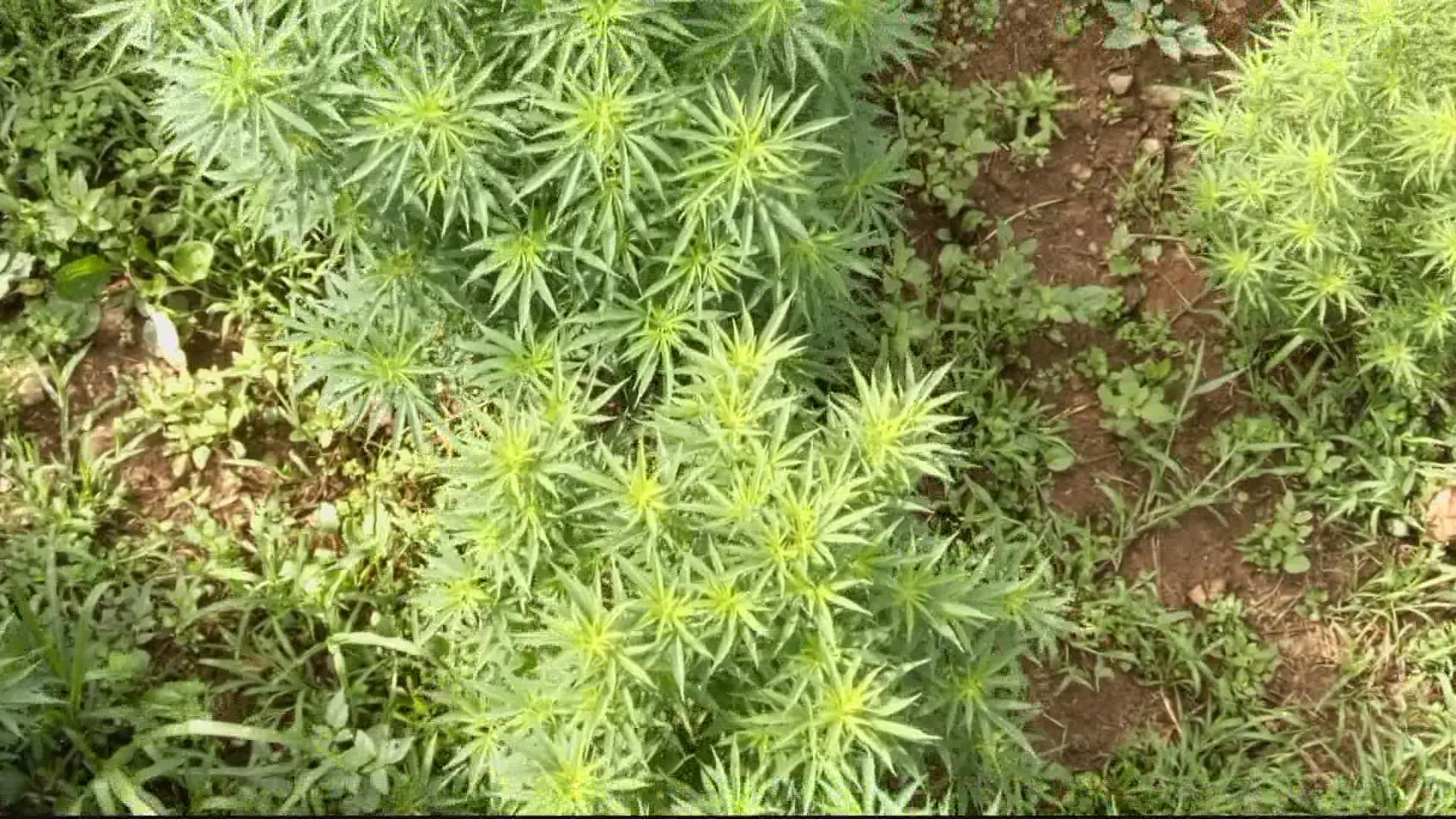HILLSVILLE, Va. — Delta-8 THC is a federally legal way to get high. But now, Virginia’s attorney general is cracking down on Delta-8 THC sales citing health concerns for children. That leaves some of the state’s hemp businesses looking to move out and some are taking their jobs with them.
Some residents of Hillsville, in Carroll County, Virginia, call the town “land wealthy, but limited in income.” Travis Wagoner, who grew up there, hoped to turn things around. He began growing one of the oldest crops known: hemp. He opened a shop specializing in hemp products, Virginia Cultivars.
"We went from having 17 employees working 50 hours a week to less than 10 employees working 30 hours a week," said Wagoner.
An acre of hemp, nestled in the hill country is where Virginia Cultivars’ products start. Hemp is known for its extremely low levels of THC, a compound that produces a high. Wagoner chemically alters the hemp to create a new form of THC known as Delta-8, which is stronger and legal under the 2018 Federal Farm Bill.
The Delta-8 is infused into products, such as edibles, intended for adults. But now, it's made its way into copycat items, from unknown manufacturers, that look like popularly branded candies and snacks.
"What we have seen is an explosion of products that look very normal. They’d look like anything else you’d see at a grocery store," said Virginia Attorney General Jason Miyares.
Citing the dangers posed to children eating edibles in deceptive packaging, Attorney General Miyares and the Agriculture Commissioner sent out warnings to hemp producers of Delta-8 products. They interpret the Virginia Food and Drink Act as giving them the power to ban sales and hand out fines. This action comes after the Virginia legislature legalized sales of Delta-8 edibles.
Dr. Christopher Holstege leads UVA’s poison control center and points out there is a lack of clinical study into Delta 8 THC.
"So what we've seen with adults is things such as anxiety, seeing reality differently. rapid heart rate, blood pressures increasing," Holstege said.
Gene Linton, 74, lives near Hillsville. He suffers from arthritis and says Delta-8 edibles are better than taking pharmaceutical painkilling drugs, adding he takes a gummy a day which is effective in 30 to 40 minutes.
"It’s kind of a relief feeling that the tension is just half," recalled Linton.
Virginia hemp product manufacturers say they believe their locally grown products, with ingredients disclosed in the labelling, are getting lumped in with potentially dangerous copycat products.
Wagoner set up a booth at Richmond’s Lucky Leaf Expo recently but with the Attorney General threatening fines, none of his Delta-8 products were on display. Other vendors pulled theirs as well, including KC Honaker.
"I think it's good that the state's looking at policies to protect the citizens and take care of those folks out there. But I think they should go out and talk to some of these manufacturers and really find out what's in the products and what they do for people before they make the choice to get rid of them," said Honaker.
Attorney General Miyares and Agriculture Commissioner Joseph Guthrie declined our requests for interviews. The food safety inspector says since July 1 they’ve paid nearly 1,600 visits to retail stores selling Delta-8 products.
Hemp producers were warned that if they sell any Delta-8 edibles, they could face fines. In the meantime, some Virginia Cultivars and other hemp manufacturers are moving production and employment to neighbor North Carolina.
"I've still got the eight employees that work here daily but if the money is not here, it doesn't make sense. And I really need the support of our legislators versus, you know, I want them sitting at the table with me, not across the table from me, so to speak," said Wagoner.
Read more from WUSA9:

